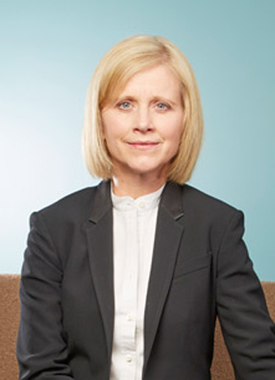On Monday, March 16, Vanderbilt officially moved all courses to online and alternative education to protect the health and safety of the community during the global coronavirus outbreak. During this transition, the university has put a priority on providing faculty with the tools and resources they need to successfully implement their courses online.

“I am grateful to our faculty members for their willingness to embrace change rapidly, as we all adapt to alternative methods of teaching and learning and other university business during this critically important time for social distancing,” said Tracey George, vice provost for faculty affairs and the Charles B. Cox III and Lucy D. Cox Family Chair in Law and Liberty. “We want to be sure our students know that Vanderbilt remains fully committed—during these unprecedented times—of continuing our mission as a renowned center for scholarly research, informed and creative teaching, and service to the community and beyond.”
On March 13, the Office of Faculty Affairs launched a new portal for faculty to find support for moving their courses completely to online and alternative education. The webpage includes information on training, digital tools, teaching guides and university resources. Faculty Affairs also developed a new teaching continuity FAQ for faculty to find more in-depth information on the transition.
Visit the Faculty Online and Alternative Education Resources webpage.>>
In an effort to maintain teaching continuity through April 30, the Office of Faculty Affairs has offered eight workshops for faculty since March 11. More than 550 faculty members have participated in the sessions—“Tools for Putting Your Teaching Online”—either in-person, via online conferencing software such as Zoom or via an online recording of the sessions. The workshops provide training on the numerous digital tools available to faculty.
Faculty learned about a program in Brightspace, Vanderbilt’s course management system, which allows them to use screen capture to create recorded video lectures that can easily be shared with students for asynchronous learning. Some faculty are developing asynchronous learning, which allows students to access lessons and course materials at any time, helping in courses where students may now be spread across multiple time zones.
Some faculty who were among the first to host their courses online reported positive experiences.
“What faculty should know, perhaps more than anything, is that the hard work they have already put in to building relationships with their students will carry them through these challenging times.” –Catherine Gavin Loss
“What faculty should know, perhaps more than anything, is that the hard work they have already put in to building relationships with their students will carry them through these challenging times,” said Catherine Gavin Loss, associate dean for academic affairs and professional education and associate professor of the practice in Leadership, Policy and Organizations at Peabody College. “My students were engaged, generous and helpful—some of them are Zoom experts and were with me every step of the way.”
By the numbers
Using Zoom, faculty, students and staff have held more than 1,500 meetings with approximately 7,700 participants since the university announced last week the availability of the online conferencing software, according to data from Distribution Technology Services.
During the same short time period, 214,185 meeting minutes have been tallied on Zoom, with some of the connections coming from international countries that include Australia, China, Israel, Italy, Japan and more.
A similar spike has occurred with the Vanderbilt community’s usage of Kaltura, a tool for uploading and creating video with online courses. The minutes of view time March 1–17 last year through Kaltura were 95,529, compared to around 254,000 minutes this year so far, according to statistics from the Center for Teaching.
VUIT has shifted its focus to serve as immediate responders to address any technical issues that faculty, staff and students face this week and beyond, dedicating more than 40 staff members to support alternative learning full-time. Most of the staff members are assigned to teams focused on each of the 10 schools and colleges as well as the deans, as each of them roll out alternative learning plans.
All 10 Vanderbilt schools and colleges also are coordinating sessions to focus on pertinent areas for each one and share effective tools and strategies for meetings and other university business.
The VUIT Tech Hub has been very busy, fielding 976 help requests and 486 calls during the past five days. Some staff have been reassigned there, and hours have been expanded—from 7 a.m. to 11 p.m. seven days a week—during the first three weeks of online classes.
The Jean and Alexander Heard Libraries launched a dedicated webpage of resources to support remote teaching, learning and research on March 10 that is updated daily. Through March 16, there were 781 page views, with an average time of four and a half minutes.
Recent service additions to support remote teaching include virtual chat reference and expansion of Interlibrary Loan to provide digital access to physical items. Between March 1–17, there were 104 document delivery articles scanned by the library for Vanderbilt patrons. Some 312 scans were delivered to other libraries around the world, and 277 articles were received from other libraries for Vanderbilt faculty, students and staff.
Electronic book requests continue to rise sharply, with 200 added in just the last two weeks.
Since March 1, Vanderbilt Libraries has tracked more than 100 individual interactions with faculty, with questions ranging from accessing streaming media for online classes, to sharing copyrighted materials online, to consulting with faculty on virtual options for research instruction. In addition, more than 300 faculty and students received reference assistance between March 1–17 through Ask A Librarian questions.
To stay informed on the latest announcements from Vanderbilt on COVID-19 and current university actions, visit vanderbilt.edu/coronavirus.